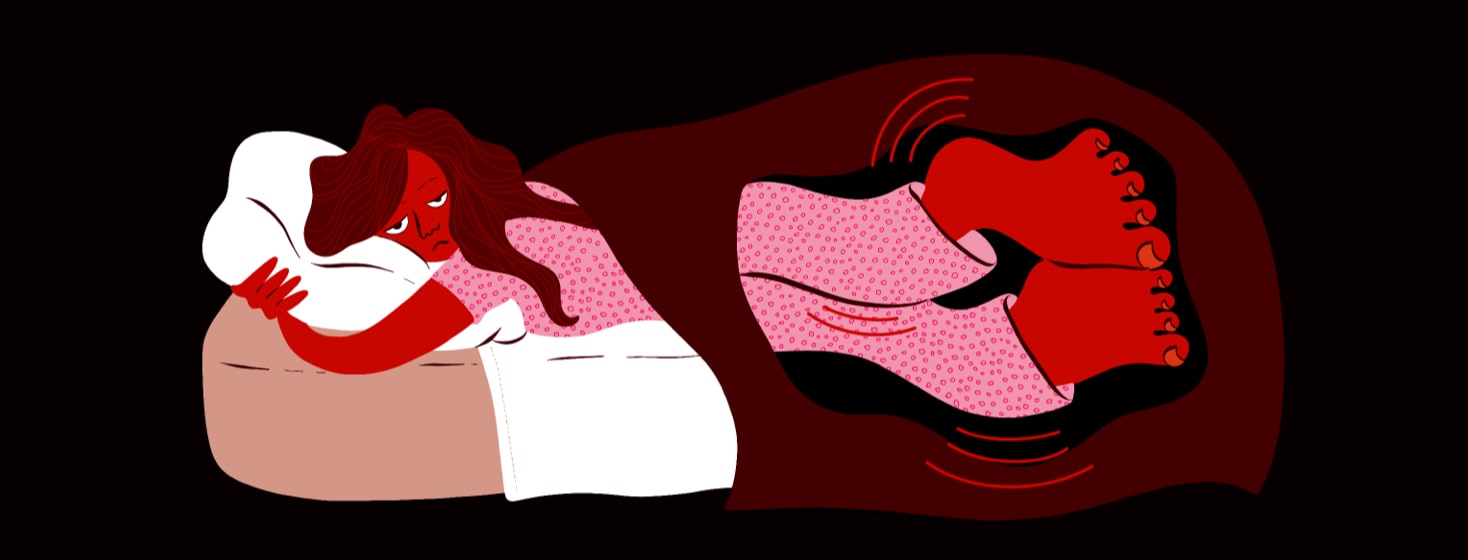Managing Restless Legs Syndrome and MG
I recently found out my restless legs syndrome (RLS) is more than likely related to myasthenia gravis (MG). If you don’t already know, RLS is a condition that causes a really unpleasant and very uncomfortable sensation in the legs that causes the person to have an irresistible urge to move them. It isn’t just "moving" them but MOVING them! When mine really get going it’s a constant, fast shaking of one or both legs.1,2
Some other sensations felt in the legs can include burning, itching, creeping, crawling, tingling, and/or a sensation that feels like an electric shock. I’ve had a few of these but didn’t ever connect them to RLS. Especially when navigating the many symptoms of MG.2
RLS and MG symptoms
RLS interrupts my sleep - it tends to wake me up at night quite often, and getting back to sleep can be nearly impossible. I sometimes get rather moody, irritable, and have problems concentrating. This can be a challenge when MG already increases fatigue and can lead to brain fog.
The sensation of RLS is hard to describe, but I get a strange feeling in my legs before it begins. Sometimes it feels like the nerves are irritated, they jerk a few times, then the leg shaking begins. For those of us with MG, rest is so important, but my RLS can disrupt that because it usually occurs at night or when I'm relaxing.
It also seems every time I have a good case of restless legs, some of my MG symptoms return. I wake up several times at night and am extremely tired and weak the next day. And I’ve found, the warmer the room is, the more I’m affected by RLS and weakness. Heat can also be a trigger for MG. The overlapping triggers and symptoms can make it difficult to manage these 2 conditions at once.
Managing RLS
From what I gather, no one knows what causes RLS, but it’s suspected to be a problem with the way our brain cells use dopamine. Dopamine is a brain chemical that aids with muscle movement. Myasthenia gravis also impacts movement by affecting the communication between the nerves and muscles in our body. It is not easy coping with RLS and MG - and RLS can and does interfere with quality of life.2
For me, there seems to be a link between my diet and RLS. I sometimes like to have hot tea before bedtime, but I've noticed the caffeine can worsen my symptoms. I am trying to avoid caffeine as much as possible in the evening and later at night.
Magnesium supplements are often recommended to help treat RLS. But for those of us with MG, we must use caution when taking magnesium as it can worsen MG symptoms. For anyone with RLS and MG, I encourage you to speak with your neurologist before taking magnesium.3,4
How I've been feeling lately
Lately, it feels like I’m not experiencing RLS symptoms as often. I’m not sure if it’s the result of the changes I've made, or if it has just subsided. For now, I will be monitoring the frequency and severity of my symptoms. If it does return, I will try to recommend things that offer relief, while not worsening the symptoms of MG.
Do you suffer with RLS alongside myasthenia gravis? If so, what treatment works for you? Do you find it is hard to tell the difference between the symptoms of RLS and MG? Let us know in the comment section below.

Join the conversation